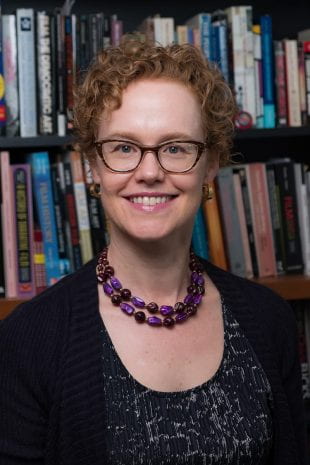EXPERT ALERT
David Ruth
713-348-6327
david@rice.edu
Katharine Shilcutt
713-348-6760
kshulcutt@rice.edu
Facebook must be more forthcoming about its care of health groups’ data, Rice expert says
HOUSTON – (May 2, 2019) – At a time when Facebook continues to face public and government scrutiny over its handling of users’ data, the social media giant announced this week that it is expanding its “Groups” by making them more of a focus on the platform, doubling down on the company’s success and offering few concessions to critics’ data privacy concerns.
By promoting and expanding its more intimate groups, such as private health groups where patients come together to share experiences and pose questions, Facebook hopes to attract more health care advertising dollars. To calm some fears, Facebook said it has taken steps to better ensure data security for these groups by allowing administrators to post users’ questions anonymously.
Rice University media scholar and digital health technology researcher Kirsten Ostherr is available to comment on Facebook’s changes. She is widely quoted on the topic and wrote an opinion piece last year for the Washington Post, “Facebook knows a ton about your health. Now they want to make money off it.” This week she was quoted in STAT, saying Facebook needs to be more forthcoming about privacy:
“That sounds, to me, a lot like managing people’s well-founded anxieties without actually making any structural changes,” said Kirsten Ostherr, a media scholar and digital health technology researcher at Rice University. Ostherr said the change doesn’t address broader concerns about how third parties can access and use sensitive user data, such as personal health information.
“People are really quite vulnerable when they’re facing health concerns. It’s the exploitation of that vulnerability by the platform and third parties that is most troubling,” Ostherr said.
For now, Ostherr told STAT, users should limit posting of their personal data:
Ostherr said she would advise people who join Facebook groups to talk about health issues to avoid sharing lab test results and other identifiable health care data. She also said that people who connect with each other through Facebook health groups could move some of their conversations to other, more private platforms.
“People should try to get the benefit that they can (from the groups) with minimal exposure of personal information,” she said.
Ostherr said online communities serve a valuable function in providing peer-to-peer health information through social support, tips about managing side effects of medications, news about clinical trials and other kinds of information that only a person living with an illness or a caregiver would know.
“These communities are lifelines for many patients, and they deserve better treatment than this,” she said.
Ostherr, who is also the Gladys Louise Fox Professor of English and director of the Medical Futures Lab in Rice’s Department of Humanities, is available for media interviews.
For more information or to schedule an interview with Ostherr, contact David Ruth, director of national media relations at Rice, at david@rice.edu or 713-348-6327.
Rice University has a VideoLink ReadyCam TV interview studio. ReadyCam is capable of transmitting broadcast-quality standard-definition and high-definition video directly to all news media organizations around the world 24/7. Rice also has a university backdrop, 1080p webcam, light kit and wireless mic for Skype interviews.
-30-
Photos for download:
https://news2.rice.edu/files/2019/05/Facebook-settings-2.jpg
Facebook photo courtesy of 123rf.com/Rice University
https://news2.rice.edu/files/2019/05/180224_-Ostherr_fitlow_005.jpg
Ostherr photo by Jeff Fitlow/Rice University
Follow Rice News and Media Relations on Twitter @RiceUNews.
Follow Ostherr on Twitter @KirstenOstherr.
Located on a 300-acre forested campus in Houston, Rice University is consistently ranked among the nation’s top 20 universities by U.S. News & World Report. Rice has highly respected schools of Architecture, Business, Continuing Studies, Engineering, Humanities, Music, Natural Sciences and Social Sciences and is home to the Baker Institute for Public Policy. With 3,962 undergraduates and 3,027 graduate students, Rice’s undergraduate student-to-faculty ratio is just under 6-to-1. Its residential college system builds close-knit communities and lifelong friendships, just one reason why Rice is ranked No. 1 for lots of race/class interaction and No. 2 for quality of life by the Princeton Review. Rice is also rated as a best value among private universities by Kiplinger’s Personal Finance.


